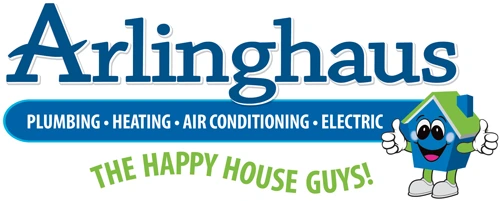When it comes to your home comfort, it’s easy to develop an “out of sight, out of mind” mentality. One thing you should never forget? Checking for signs of a dirty air filter.
The goal of the air filter is to prevent dust and debris from entering your home and keep the dust, pet dander, and other indoor allergens from cycling through your home over and over again. By taking just a few minutes every few months to check and replace your air filters, you can keep a cleaner home, improve the HVAC system’s efficiency, and make the indoor air healthier for everyone.
If you don’t know how to tell when the air filter needs replacing in your house, follow these five signs to determine whether your home air filter is past its prime. These five situations help you to understand the role that your air filters play in your home comfort and how you can improve it with a very small investment of your time and money.
1. Vents Are Full of Dust and Dirt
Your HVAC system works in a couple of different ways. Some systems pull a portion of the air from outdoors, filter it, and send it through the home. Others continually recycle the air inside the home, passing it through the air filter each time. As you can imagine, this causes dust and debris to build up over time, eventually clogging the filter altogether.
The more clogged and dirty your air filter becomes, the less effectively it can collect the dust that passes through. So, the dust will settle in the ductwork, on the vent register or grille, or around your home instead. That’s why excessive dust and debris are a sign of a clogged furnace filter.
The condition of your air filters, your home’s exterior, and your ductwork all have the potential to be weak links in the chain. If you have clean air filters, but your home is still excessively dusty, look for air leaks and leaks in your ductwork. Gaps around your windows and doors encourage the transfer of dust and dirt from outdoors every time there is a strong wind. Leaky ductwork decreases the ability of your ventilation system to filter out the pollutants affecting your indoor air quality. Instead of sending the air through the filter again, the duct leaks push air and allergens through the gaps and holes.
2. Air Filter Looks Dirty or Clogged
It is pretty simple to check your air filters. If you want to learn how to know when to change the air filter in your home, one easy thing to do is check it every month, so you can get a sense of how quickly they get clogged. Here’s how often to change your air filters:
- 1” Pleated Air Filters: Change every 30-60 days.
- 2” Pleated Air Filters: Change every 90 days.
- 3” Pleated Air Filters: Change every 120 days.
- 4” Pleated Air Filters: Change every 6 months.
- 5-6” Pleated Air Filters: Change every 9-12 months.
As you can see, the level of filtration also makes a difference in the rate your air filters get clogged. Air filters are rated using the Minimum Efficiency Reporting Value (MERV). Simply put, thicker filters usually have a higher MERV rating and can collect more debris before they become clogged. Most disposable filters need to be changed every few months, but your individual use may vary from manufacturer expectations.
The rate an air filter becomes dirty depends on your environment, maintenance of the HVAC system, and how often you use it. If you use an air conditioner every day during the summer but rely on a furnace less frequently throughout the winter, you’re likely to see signs of a clogged air filter more often during the warmer months.
Since the air filters are also filtering air from the outside, you should take a periodic look at the intake vents. Your air conditioning condenser should be wiped regularly and have 12” of clearance on all sides to ensure better airflow. If your furnace has a fresh air intake vent, which is a little like a dryer vent, make sure that it is not clogged with dirt and debris. These small changes can reduce the pressure on your air filters to keep dust from entering the home.
3. HVAC System Takes Longer to Heat or Cool Your Home
Regardless of how dirty your air filters become, your HVAC system still has to push air through them. Compare freely breathing fresh, clean air to trying to breathe through several layers of cheesecloth, and you will get the idea. Clogged air filters often cause your furnace to cycle on and off more often or for the system to run more frequently. This is also known as short-cycling, and it’s a definite sign you need a new air filter. As a result, your energy usage goes up without a corresponding increase in comfort.
A poorly-functioning HVAC system could be a sign you need to change your home air filter. You can change out the air filter as a simple way to promote HVAC efficiency. If a clean air filter does not seem to solve the problem, you might need a professional heating or AC repair from your local Happy House Guys in Ohio, Kentucky, or parts of Indiana.
4. You Have Higher Energy Bills
Have you noticed skyrocketing energy bills? If so, this could be one sign that your home air filter is past its prime. When your furnace runs more frequently and has to work harder, your energy usage may skyrocket alongside your energy bills. When you change your furnace filter regularly, you can help your furnace work more efficiently, effectively wasting less energy and lowering your energy bills.
However, rising energy bills aren’t always a sign that your home air filter is past its prime. Sometimes, your furnace may need other repairs to help it function properly.
5. Poor Indoor Air Quality
Like most parts of your HVAC system, the needs and maintenance of your air filters are dependent on how they are used. You have many options to consider for overall filtration.
First, identify if your concerns about filtration are due to a fault in the air filter or the system. If they seem to be working appropriately, you can start to think about what you might add to your home to reduce allergens and other contaminants. Start by trying air filters with a MERV rating of 5-8 or 9-12, which are set to pull out the most common irritants. Consider other sources of filtration for your home, such as HEPA filtration systems or air purifiers. If you’re wondering how long after changing the air filter you’ll notice cleaner air, the answer is almost immediately!
Additional Ways to Improve Indoor Air
You can also make a number of improvements with some simple changes to household behaviors. If you fall victim to seasonal allergies, avoid keeping your doors and windows wide open at those times of the year. Make a plan to avoid using harsh cleaning products that emit fumes, and always use proper ventilation when cooking or working on home improvement projects. Keep portable grills outside, and minimize the smoke-producing activities you do inside. The more effort you make toward prevention, the less your filtration system has to manage. This leads to positive changes in your indoor air quality and encourages greater efficiency in your ventilation system.
Sometimes, a bit of work yields a lot of benefits for you and your family. When you keep your air filters well maintained, you help your HVAC system run effectively in any season. You also keep dust and debris from contaminating your home and negatively affecting your health. Once you know how to determine that your air filters need to be changed, you can make a plan to do it at least every three months.
6. AC Unit Is Hot to the Touch
The more energy you exert, the hotter you feel — and your AC unit is the exact same way! A clogged air filter will force your air conditioner to work harder to pull in air, cool it down, and release it back into your home. As a result, the unit’s exterior may become hot to the touch or even blow out warm air. This excessive strain and overheating can result in significant repairs or, worse yet, a complete breakdown of the AC system.
If your home is feeling unusually warm, the first thing you should do is check for a dirty filter! But if you find that the filter is clean, don’t hesitate to call one of our Happy House Guys for a professional diagnosis.
7. You Can’t Remember the Last Time The Air Filter Was Changed
It happens to the best of us! Whenever you find yourself scratching your head and wondering when the last replacement was, you’re probably overdue for a new filter. The simplest thing you can do is check to see how dirty it is. Any filter that looks like this needs to be changed immediately!
How to Change Your Air Filter
If you’ve noticed one — or a few — of these signs that you need to change your home air filter, there’s no reason to worry. Fortunately, you can replace the air filter yourself by following these easy-to-follow steps:
- Choose the Right Type of Filter: Filters can vary in material and thickness, so you must install the proper heating and cooling filter for your needs. The most common types include fiberglass, HEPA, UV, and pleated filters.
- Turn Off the HVAC Unit: You can turn off the unit at the switch or your breaker.
- Locate the Filter: The filter will be behind a grate or grille, which you will need to remove to get to the filter.
- Install the New Filter: It’s filter time! After checking the old filter and removing it, insert the new filter and ensure it’s oriented correctly. Use the arrows to guide you when installing the new filter.
- Close the Filter Grate: Don’t let any unnecessary dust or debris find its way in. Make sure the filter grate is closed after the new filter is inserted.
- Turn On the HVAC Unit: Last but not least, restart your furnace!
When to Contact a Professional
Your HVAC air filter can have a significant impact on your household’s comfort, and when you notice these signs that your home air filter is past its prime, it’s crucial that your air filter gets replaced as soon as possible. However, a dirty air filter isn’t always the reason for a poorly-functioning heating and air conditioning system.
Don’t know how to check the air filters in your house? Is your HVAC system still acting strangely after changing the air filter? Then, turn to the pros at Arlinghaus. We’re a full-service company ready to tackle your AC or heating repair in Erlanger, KY. From air conditioner tune-ups to furnace replacements, our experienced team can do it all — and we’ll even teach you the signs of a bad air filter so you know what to look for in the future.
Contact us to schedule a furnace service today!


